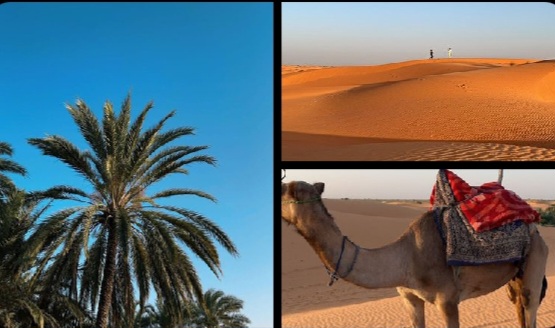By:Abdullahi Inuwa
Yobe State may soon find itself on the global tourism map—if it chooses to claim the treasure lying quietly in its backyard. In the remote stretches of Yusufari, where golden sands roll endlessly into the horizon, Nigeria possesses one of its most breathtaking and least explored natural wonders. These stunning desert landscapes, rivaling scenes from the Sahara itself, remain largely unknown to the world. But experts say that with the right investment and a clear vision, Yusufari could transform into a thriving tourism hub capable of boosting the state’s economy and creating thousands of jobs.
The vast dunes of Yusufari, sculpted by centuries of wind and time, offer a rare spectacle in West Africa. Photographers describe the region as “a canvas of natural art,” while adventurers compare its serenity to the famous deserts of Namibia and Morocco. Yet, unlike these international destinations, Yusufari remains untouched—raw, pure, and full of untapped potential.
Observers argue that Yobe State stands at a decisive moment. As global tourism trends increasingly favor eco-adventures, desert safaris, cultural expeditions, and off-the-beaten-path destinations, Yusufari’s landscapes offer all the ingredients for a booming tourism economy. What is needed now is a strategic shift: for the state government to elevate tourism as a priority sector for income generation.
Stakeholders insist that proper development—without compromising environmental sustainability—could open up an entirely new revenue stream for the state. “Tourism is one of the most reliable economic drivers when properly harnessed,” a travel expert noted. “Yusufari could attract both domestic and international visitors, stimulate local businesses, and create thousands of jobs, from tour guides to transport operators, artisans, hoteliers, and cultural performers.”
Indeed, if developed thoughtfully, Yusufari could host desert festivals, sand-dune sports competitions, camel safaris, stargazing camps, and traditional cultural showcases. The region’s serene night skies alone, free from pollution, could draw astronomy enthusiasts from across the world. Alongside tourism infrastructure—such as access roads, rest lodges, and visitor centers—the ripple effect would boost agriculture, trade, crafts, and youth employment.
Communities in Yusufari stand to gain significantly. Local residents, many of whom rely on pastoral and small-scale economic activities, could find new livelihoods through tourism-related jobs and enterprises. Women could benefit from selling traditional crafts, food, and textiles, while the younger population would have fresh employment opportunities that don’t require migration to urban centers.
Moreover, tourism development would improve Yusufari’s visibility, bringing important developmental projects such as better roads, electricity, and communication networks.
As Yobe State strategizes for the future, Yusufari’s desert wonder offers a promising path toward economic diversification. The message is clear: with intentional investment and visionary leadership, Yobe could transform its hidden desert jewel into a world-class attraction—turning golden sands into golden opportunities for its people.
Abdullahi Inuwa Social Commentator ainuwa303@gmail.com




